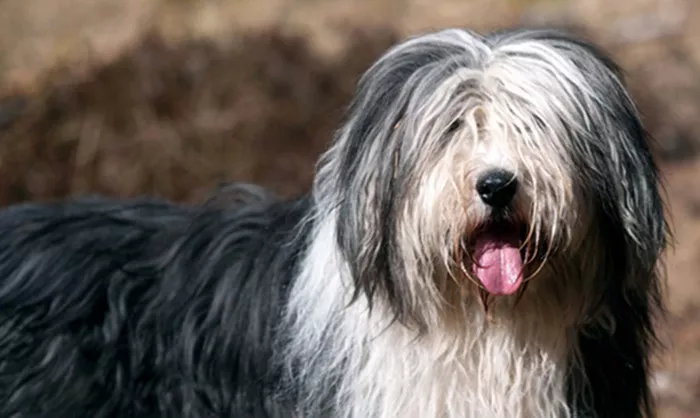Bearded Collies are lively and affectionate dogs known for their shaggy coats and playful personalities. If you own a Bearded Collie or plan to get one, you might wonder when they stop growing. Understanding their growth stages helps ensure proper care, nutrition, and exercise. This article provides a detailed guide on the growth timeline of Bearded Collies, including factors that influence their development.
Understanding Bearded Collie Growth Stages
Bearded Collies go through several growth phases before reaching full maturity. These stages include puppyhood, adolescence, and adulthood. Each stage has unique characteristics that affect their size, weight, and behavior.
Puppy Stage (Birth to 6 Months)
Bearded Collie puppies grow rapidly in their first six months. At birth, they weigh only a few ounces. By the time they are six months old, they may reach half their adult size. During this stage, their bones and muscles develop quickly. Proper nutrition is crucial to support healthy growth.
Puppies need high-quality puppy food rich in protein and essential nutrients. Overfeeding can lead to obesity, which may cause joint problems later. Regular vet check-ups ensure they are growing at a healthy rate.
Adolescent Stage (6 Months to 1.5 Years)
Between six months and 1.5 years, Bearded Collies enter adolescence. Their growth slows but continues steadily. They may appear lanky as their limbs grow longer. This stage is also when their adult coat starts to develop, replacing the softer puppy fur.
Behavioral changes are common during adolescence. They may become more independent or test boundaries. Consistent training and socialization help them mature into well-behaved adults.
Adult Stage (1.5 to 2 Years)
Most Bearded Collies reach full height by 1.5 years. However, they may continue filling out until age two. By this time, they should have a sturdy, muscular build. Their coat becomes thicker and requires regular grooming to prevent matting.
Adult Bearded Collies need a balanced diet to maintain their weight. Too much food can lead to obesity, while too little may cause malnutrition. Regular exercise keeps them fit and mentally stimulated.
Factors That Influence Bearded Collie Growth
Several factors affect how quickly a Bearded Collie grows and when they stop. These include genetics, diet, exercise, and overall health.
Genetics
Genetics play a major role in a Bearded Collie’s growth. If their parents were large, they may grow bigger and take longer to reach full size. Smaller parents often produce smaller offspring that mature faster.
Diet
A nutritious diet is essential for healthy growth. Puppies need food formulated for large breeds to support bone development. Adults require a balanced diet with the right amount of protein, fats, and carbohydrates.
Avoid feeding table scraps or low-quality dog food. These can lead to weight gain or nutrient deficiencies. Consult a vet for dietary recommendations tailored to your dog’s needs.
Exercise
Regular exercise helps Bearded Collies develop strong muscles and bones. However, excessive exercise in puppies can harm their growing joints. Short, controlled play sessions are best for young dogs.
Adults need daily exercise to stay healthy. Activities like walking, running, and playing fetch keep them fit. Mental stimulation, such as training or puzzle toys, is also important.
Health
Health issues can slow growth or cause stunted development. Parasites, infections, or hormonal imbalances may affect their size. Regular vet visits help detect and treat problems early.
Spaying or neutering can also influence growth. Dogs fixed too early may grow taller but have weaker bones. Most vets recommend waiting until at least one year of age for this procedure.
How to Tell If Your Bearded Collie Has Stopped Growing
You can check if your Bearded Collie has reached full size by observing physical and behavioral changes.
Physical Signs
- Their height remains consistent for several months.
- Their weight stabilizes without significant changes.
- Their coat is fully developed and no longer changing texture.
Behavioral Signs
- They have less puppy-like energy and become calmer.
- They show fewer signs of teething or chewing.
- Their appetite levels out, and they eat consistently.
Common Growth-Related Concerns in Bearded Collies
Some owners worry if their Bearded Collie grows too fast or too slow. Here are common concerns and solutions.
Slow Growth
If your Bearded Collie is smaller than expected, check their diet and health. Malnutrition or illness may be the cause. A vet can run tests to identify any underlying issues.
Rapid Growth
Fast-growing puppies may develop joint problems like hip dysplasia. Feeding a balanced diet and avoiding overexertion helps prevent this.
Uneven Growth
Some Bearded Collies may have growth spurts followed by slow periods. This is normal unless accompanied by health issues.
Conclusion
Bearded Collies typically stop growing in height by 1.5 years but may fill out until age two. Genetics, diet, exercise, and health all influence their development. Providing proper care ensures they grow into healthy, happy adults.
Monitoring their growth helps detect any problems early. Regular vet visits, a nutritious diet, and appropriate exercise are key. With the right care, your Bearded Collie will thrive and bring joy for years to come.
Understanding your Bearded Collie’s growth stages allows you to meet their needs at every phase. Whether they are a playful puppy or a mature adult, your attention and care make all the difference. Enjoy watching your furry friend grow into a strong, beautiful companion.
Related topics:
How Much Exercise Do Bearded Collies Need?


